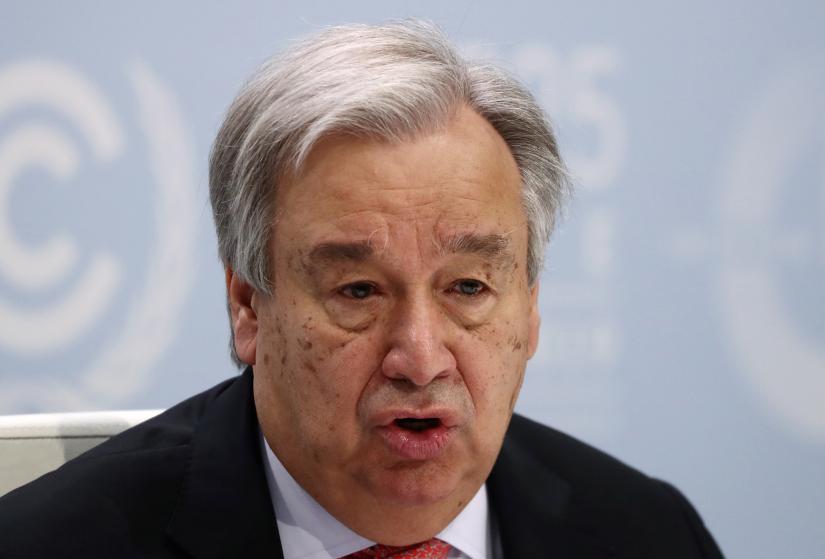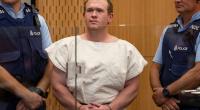 The United Nations on Wednesday launched a $2 billion global humanitarian response plan to fund the fight against the coronavirus pandemic in the world's poorest countries, warning that it is threatening the entire human race, reports PTI.
The United Nations on Wednesday launched a $2 billion global humanitarian response plan to fund the fight against the coronavirus pandemic in the world's poorest countries, warning that it is threatening the entire human race, reports PTI.
“The world faces an unprecedented threat. The covid-19 pandemic has rapidly covered the globe. It has spread suffering, disrupted billions of lives and endangered the global economy. Covid-19 is menacing the whole of humanity – and so the whole of humanity must fight back,” UN Secretary General Antonio Guterres said at the launch of the Global Humanitarian Response Plan for covid-19.
As all nations struggle to combat coronavirus, the UN launched the global response plan, an interagency plan which will be coordinated by the UN's Office for the Coordination of Humanitarian Affairs and brings together existing appeals from the World Health Organisation and other UN partners, and identifies new needs as well.
“Today we are launching a $2 billion global humanitarian response plan to fund the fight against covid-19 in the world's poorest countries,” Guterres said.
“Properly funded, it will save many lives and arm humanitarian agencies and NGOs with laboratory supplies for testing, and with medical equipment to treat the sick while protecting health care workers,” the UN Chief said, adding that the plan also includes additional measures to support host communities that continue to generously open their homes and towns to refugees and displaced persons.
Guterres joined virtually Under-Secretary-General for Humanitarian Affairs Mark Lowcock, WHO's Director-General Tedros Adhanom Ghebreyesus and UNICEF's Executive Director Henrietta Fore, noted that individual country responses are not going to be enough and even wealthy countries with strong health systems are buckling under the pressure.
With the virus arriving in countries already in the midst of humanitarian crises caused by conflicts, natural disasters and climate change, Guterres said the world must come to the aid of the ultra-vulnerable – millions upon millions of people who are least able to protect themselves.
“The world is only as strong as our weakest health system. If we do not take decisive action now, I fear the virus will establish a foothold in the most fragile countries, leaving the whole world vulnerable as it continues to circle the planet, paying no mind to borders,” he said.
Ghebreyesus said the pandemic has accelerated over the last two weeks.
“The message to all countries is clear. Heed this warning now,” he said, adding that coordinating politically and financially today can help save lives and slow the spread of the pandemic.
“History will judge us on how we responded to the poorest communities in their darkness hour.”
Guterres said there is a need to maintain support for existing humanitarian response plans on which 100 million people depend.
“If such funding is diverted, the consequences could be catastrophic: the further spread of cholera, measles and meningitis; greater levels of child malnutrition; and a blow to the ability of these countries to combat the virus,” he said.
UNICEF Executive Director Henrietta Fore said covid-19 has upended the lives of children around the world as hundreds of millions are not in school.
“Children are the hidden victims of this pandemic. We're worried about its short- and long-term impacts on their health, well-being, development and prospects. We're worried about their lack of access to water and hygiene services,” she said.
While washing hands with soap is critical in the fight against covid-19, yet 40 per cent of the world's population – or 3 billion people – do not have a handwashing facility with water and soap at home.”
Fore said UNICEF is particularly worried about the millions of children on the move or living through conflicts.
“For them, the consequences of this pandemic will be unlike any we have ever seen. These children live in overcrowded conditions, often in active war zones, with limited or non-existent access to health care. A family of six, eight, ten or 12 can be living in one room. Self-isolation and handwashing with soap will not be easy in such environments.”
Underscoring that funding this global humanitarian response plan for covid-19 is essential, she said UNICEF alone is appealing for $405 million for its response in emergency countries, an additional $46.6 million for the agency's response in non-emergency countries.
“So our total appeal is for $651.6 million,” she said.
 International
International
41364 hour(s) 19 minute(s) ago ;
Morning 07:13 ; Sunday ; Jul 06, 2025
UN chief appeals $2b for poor nations to fight virus
Send
Bangla Tribune Desk
Published : 13:12, Mar 26, 2020 | Updated : 13:13, Mar 26, 2020
Published : 13:12, Mar 26, 2020 | Updated : 13:13, Mar 26, 2020
0 ...0 ...
/hb/
Topics: Top Stories
- KOICA donates medical supplies to BSMMU
- 5 more flights to take back British nationals to London
- Covid19: Rajarbagh, Mohammadpur worst affected
- Momen joins UN solidarity song over COVID-19 combat
- Covid-19: OIC to hold special meeting
- WFP begins food distribution in Cox’s Bazar
- WFP begins food distribution in Cox’s Bazar
- 290 return home to Australia
- Third charter flight for US citizens to return home
- Dhaka proposes to postpone D8 Summit
Unauthorized use of news, image, information, etc published by Bangla Tribune is punishable by copyright law. Appropriate legal steps will be taken by the management against any person or body that infringes those laws.
Bangla Tribune is one of the most revered online newspapers in Bangladesh, due to its reputation of neutral coverage and incisive analysis.
F R Tower, 8/C Panthapath, Shukrabad, Dhaka-1207 | Phone: 58151324; 58151326, Fax: 58151329 | Mob: 01730794527, 01730794528


